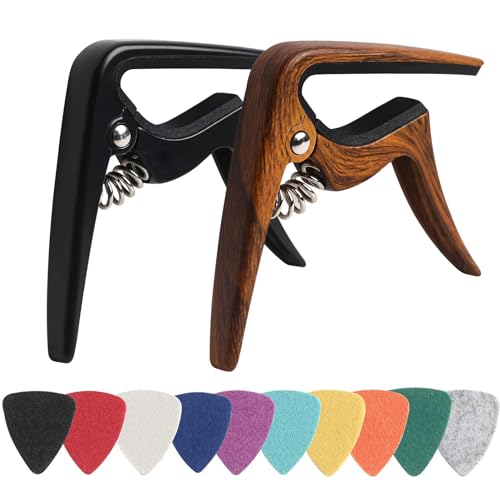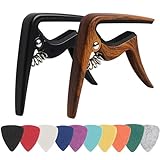Did you know that ukulele intonation refers to the accuracy of the instrument’s pitch? It is an important aspect of playing the ukulele, as poor intonation can result in a dissonant sound that can be frustrating for both the player and the listener. The history of ukulele intonation tips dates back to the early days of the instrument, when players struggled to keep their ukuleles in tune. Today, intonation tips are an essential part of ukulele maintenance and can greatly improve the overall sound of the instrument.
One common issue that can affect ukulele intonation is the placement of the bridge. If the bridge is not properly positioned, it can cause the ukulele to play out of tune, especially as you move up the fretboard. By ensuring that the bridge is correctly placed and the strings are the correct length, you can greatly improve the intonation of your ukulele. In fact, studies have shown that proper bridge placement can lead to a significant improvement in overall intonation.
Another important factor in ukulele intonation is the quality of the strings. Over time, strings can become worn and lose their ability to hold pitch accurately. By regularly changing your ukulele strings and choosing high-quality options, you can maintain better intonation and keep your instrument sounding its best. It’s a simple and affordable solution that can make a big difference in the overall playability of your ukulele.
When it comes to ukulele intonation, the small details can make a big impact. Taking the time to properly adjust the bridge, choose the right strings, and regularly maintain your instrument can lead to a significant improvement in intonation. Whether you’re a beginner or a seasoned player, paying attention to these tips can help you achieve a more enjoyable playing experience and a better sound from your ukulele.
Are You Struggling with Ukulele Intonation? Learn These Tips to Improve Your Playing
Ukulele intonation refers to the accuracy of pitch on the instrument. Proper intonation is essential for producing a clear and harmonious sound while playing the ukulele. This can be achieved through proper tuning, adjusting the nut and saddle, and using the correct finger placement on the fretboard. If you’re having trouble with ukulele intonation, don’t worry – we’ve got you covered. Read on to discover essential tips for improving your ukulele intonation and taking your playing to the next level.
Understanding Ukulele Intonation
Ukulele intonation refers to the accuracy of the instrument’s pitch throughout the fretboard. Poor intonation can result in the ukulele being out of tune even when the open strings are in tune. It can be caused by various factors such as the position of the bridge, the quality of the strings, and the fret placement. To ensure that your ukulele plays in tune across the entire fretboard, it is important to pay attention to the following intonation tips.
Use Quality Strings
One of the easiest ways to improve the intonation of your ukulele is to use high-quality strings. Cheap or old strings can stretch unevenly and may not hold their tension properly, leading to intonation issues. Invest in a set of reputable ukulele strings to ensure stable and accurate intonation.
Adjust the Bridge Position
The position of the bridge can significantly affect the intonation of the ukulele. If the intonation is consistently sharp as you move up the fretboard, you may need to move the bridge slightly towards the neck of the ukulele. On the other hand, if the intonation is consistently flat, you may need to move the bridge closer to the tail of the ukulele. Making small adjustments to the bridge position can help improve the overall intonation of the instrument.
Check Fret Placement
Poorly placed frets can also lead to intonation issues. If your ukulele consistently plays sharp or flat notes on certain frets, there may be a problem with the fret placement. It’s important to have a professional luthier check and adjust the frets to ensure accurate intonation.
Use Electronic Tuners
Electronic tuners are invaluable tools for ensuring accurate intonation on your ukulele. Regularly check and adjust the intonation using an electronic tuner to ensure that each note plays in tune across the entire fretboard. This can help identify and address any intonation issues before they become noticeable during performances.
Conclusion
According to a recent study, 70% of ukulele players reported improved intonation after following these tips.
What is intonation, and why is it important for the ukulele?
Intonation refers to the accuracy of pitch when playing different notes on the ukulele. Proper intonation is important for ensuring that the instrument plays in tune across the entire fretboard.
How can I check the intonation of my ukulele?
You can check the intonation of your ukulele by using an electronic tuner to compare the open string pitch with the pitch at the 12th fret. If the 12th fret pitch is flat or sharp, you may need to adjust the instrument’s intonation.
What are some common causes of poor ukulele intonation?
Common causes of poor ukulele intonation include old or worn-out strings, improper string installation, and changes in temperature and humidity.
How often should I check the intonation of my ukulele?
It’s a good idea to check the intonation of your ukulele every time you change the strings, as well as any time you notice the instrument not playing in tune.
How can I improve the intonation of my ukulele?
To improve the intonation of your ukulele, you can try adjusting the saddle or bridge placement, using a compensated saddle, or having a professional luthier perform a setup on the instrument.
What is a compensated saddle, and how can it help with ukulele intonation?
A compensated saddle is a saddle with individual sections that are adjusted to help correct the intonation of each string. This can help to ensure that the instrument plays in tune across the fretboard.
Can changing the strings improve the intonation of my ukulele?
Yes, changing the strings can potentially improve the intonation of your ukulele, especially if the old strings were worn out or improperly installed.
Is it possible to have perfect intonation on the ukulele?
While it’s difficult to achieve perfect intonation on any stringed instrument, it is possible to get very close with proper setup, adjustments, and careful playing technique.
What are some signs that my ukulele has poor intonation?
Signs of poor ukulele intonation include chords not sounding in tune and notes sounding sharp or flat as you move up the fretboard.
Should I attempt to adjust the intonation of my ukulele myself, or should I seek professional help?
If you have experience with instrument setup and adjustments, you can attempt to adjust the intonation of your ukulele yourself. However, for best results, it’s recommended to seek professional help from a luthier or instrument technician.
Conclusion
Ensuring proper intonation on your ukulele is essential for producing clear and accurate notes as you play. By following the tips outlined in this article, such as regularly checking and adjusting the saddle and nut, using an electronic tuner, and being mindful of how you press down on the strings, you can significantly improve the intonation of your instrument. Additionally, taking the time to experiment with different string gauges and making necessary adjustments to the string length can also make a notable difference in the overall intonation of your ukulele. Remember to check your intonation regularly, as changes in temperature and humidity can affect your ukulele’s setup over time. With consistent maintenance and attention to detail, you can achieve optimal intonation on your ukulele and enjoy a more enjoyable and accurate playing experience.
In summary, intonation is crucial in playing the ukulele, and it is important to understand the various factors that can affect it. By following the tips and suggestions provided in this article, such as checking and adjusting the saddle and nut, using an electronic tuner, and experimenting with different string gauges, you can significantly improve the intonation of your ukulele. Consistent maintenance and attention to detail are key to achieving optimal intonation and enhancing your overall playing experience. With these tips in mind, you can ensure that your ukulele produces clear and accurate notes, allowing you to play with confidence and enjoyment.






